wikiHow is a “wiki,” similar to Wikipedia, which means that many of our articles are co-written by multiple authors. To create this article, 28 people, some anonymous, worked to edit and improve it over time.
There are 7 references cited in this article, which can be found at the bottom of the page.
This article has been viewed 152,261 times.
Learn more...
Even though you may dislike your terrible high school in the worst way, it can be dealt with and it can be survived. Read this wiki to learn how.
Steps
Figuring out What You Hate About High School
-
1Write down a list of things you hate about high school. Knowing why you hate high school is the first step to get through it. Do you hate getting up at 7 A.M. every morning to take the bus? Do you hate getting called at in class? Do you hate sitting alone in the cafeteria? Write down everything you hate about high school, from the smell of your old classroom to the people who gossip behind your back.[1]
-
2Sort the things you hate on your list into bigger categories. If you don’t like waking up early and staying up late doing homework, you could categorize those two things under a phrase like “high school cuts down on my sleep.” For example, take a look at this list of things someone hates about high school:[2]
- Getting called on in class
- Cafeteria food that makes you sick
- Gym exercises
- Strict study hall monitors
- Having few friends
- Getting gossiped about
- Getting judged
- Uncomfortable uniforms
Advertisement -
3Group your discomfort into themes, if possible. At first glance, the items on your list might seem unrelated. But if we take a closer look, we can see some bigger categories forming from them. Take a look at the following few items from the list: 1) Cafeteria food that makes you sick; 2) uncomfortable uniforms; 3) gym exercises. Notice anything similar about these three items? They all have to do with being physically uncomfortable. Whether you’re throwing up after eating mystery meat, itching all day from your overly-tight uniform, or aching all over after gym, your body is experiencing physical discomfort. This is one category that can help organize your list. Other categories might be social discomfort, or academic discomfort.
- Social Discomfort might include having few friends, getting gossiped about, getting judged, navigating exclusive social groups (cliques), or attending school dances.
- Academic Discomfort might include getting called on in class, strict study hall monitors, boring classes, or getting bad grades.
-
4Figure out which category on your list summarizes the biggest problems you have with high school. Your “problem category” isn’t necessarily the category with the most number of items. To figure out the problem category you hate the most, think about the individual items on your list and notice how you feel. Does thinking about gym exercises make your chest clench? Does thinking about gossip bring a lump to your throat? Circle the problem category that bothers you the most. Now that you’ve figured out what you hate most about high school, it’s time to start coming up with specific, useful solutions.
- Do keep in mind that this is only a starting point. You can, and should, go back to each category and repeat the next steps as many times as you need to.
Creating a Plan to Deal with What You Hate about High School
-
1Ask yourself why you circled the category you did. When creating a plan, you need to know the exact things that your plan is going to address. In this step, figure out why you hate what you hate about high school. This might be hard to do at first, but keep asking yourself “why do I hate this?” when you look at the items under the category you circled. Here are three examples of ways you might reason through why you circled a certain category:
- “I circled ‘Physical Discomfort.’ I hate beating up my body every day in gym class, and our uniforms are itchy and too tight. But why do I hate gym class and uniforms so much? Well…when I wake up every morning I feel like I can’t move my legs, and there’s this weird rash on my back that isn’t going away. Those are two things that are making going to high school literally painful for me.“
- “I circled ‘Social Discomfort.’ I never get asked out to school dances, and I’m hearing gossip about me every day. I guess what makes things like gossip really bad is that I don’t have a group of friends I can fall back on. No one’s there to back me up against the gossip, and I don’t have anyone to hang out with when school dances roll around.”
- “I circled ‘Academic Discomfort.’ Math is the most boring subject in school, and I hate it when the teacher calls on me. Every minute of class drags on, and whenever I get called on I don’t know what to say. I’ve had boring classes before, but this class feels like torture. I guess this class is especially bad because I didn’t get a chance to learn half the material we’re covering in middle school, and I can’t even figure out how to do most of the homework.”
The point of this step is to figure out the reasons behind your dislike of high school. Write down your reasons on a separate sheet of paper. Now that you’ve identified why you hate high school, you can take specific steps to solve the problem.
-
2Brainstorm ways to tackle the problems you’ve identified. For example, if you don’t feel like you have a group of friends you can talk to and rely on, write down some possible ways to make new friends. Don’t limit yourself here! Come up with as many ideas as you can, even if you can’t imagine yourself doing them. Here are a few examples of ways you might write out your thoughts:
Keep this list handy. It’ll be useful as you come up with your action plan.Problem: I need a group of friends who I can fall back on.
Ways I can solve this:
1. Try out new student clubs I’m interested in.
2. Sit with people eating alone in the cafeteria
3. Help out people struggling with things that I’m good at.
4. Try talking with other students sitting quietly on the bus
5. Join activities and organizations outside of school.
Problem: Math class is covering material I never learned, and the teacher is always making me participate in class.
Ways I can solve this:
1. Talk with my teacher and explain the situation.
2. Figure out what areas I can work on, and borrow the right textbooks from the library.
3. Ask someone if she wants to study for math together.
4. Write down everything I don’t understand, and bring it up during class.
5. Ask my teacher to slow down.
Problem: Gym class is making it painful to get up from bed.
Ways I can solve this:
1. Try to stretch more after gym
2. Go to the doctor and see if something’s wrong.
3. Talk with my gym teacher and ask her for advice.
4. Find ice and bandages to apply to my legs after class. -
3Show your list of possible solutions to people you trust. These people might be your older siblings, your close friends, or your parents. Ask them for their thoughts on the problem you’re dealing with, and whether they have any ideas on how you can resolve it. Add any ideas they have to your list of solutions.
-
4Underline the most practical solutions on your list. The best solutions aren’t necessarily big or dramatic. The best solutions are practical—solutions that you can start working on as soon as you walk into school tomorrow, or even today.
-
5Stick to your solutions. At this point you’ve written down ways you can fix the problem. The more you stick to those ways, the faster you’ll be able to solve the issue. You might find it helpful to tape up your solutions in a location where you’ll see it every day.
Alternatives to High School: Transferring
-
1Try everything you can before thinking about leaving your high school. Parts 1 and 2 of this article explain how you can face problems in high school head on. If you’re trying all the solutions you can think of and they haven’t been working for a while, it might be time to consider alternatives to your high school.
-
2Convince your parents that you need to transfer to another high school. Make sure to highlight how you’ve tried hard to solve the problems you’re dealing with, but have seen no real progress or success from your efforts. It’s important to make a strong case for transferring, as your parents will probably have the final say on your decision. Here are some objections your parents might have to you transferring, and possible responses to them:[3]
-
You should wait a little longer. Things will get better over time.
By this point, you've already identified why high school is such a painful experience. You've created a set of possible solutions, talked them over with others, and tried them all. Yes, you could wait--but should you? By this point, waiting is no longer a productive option. -
You'll hate the high school you transfer to even more.
Some chance is better than no chance at all. And after trying many possible solutions, you know that your high school doesn't offer you much of a chance for happiness and well-being. Establish the fact that you need to transfer, and are willing to take a risk. Later steps in this section will help you make sure the high school you transfer to will be an improvement over your old one. - For more help with this step, read How to Convince Your Parents to Let You Switch Schools.
-
You should wait a little longer. Things will get better over time.
-
3Call high school registrars around the area for information on how you can transfer. You can find the numbers of high school registrars by searching though the online directories of high schools in your area. In each of your phone calls, make sure to do the following:[4]
- Ask what documents you need to transfer. You will most likely need your official academic transcripts.
- Ask if you will lose any academic credits by transferring. Depending on the high school you’re considering transferring to, you might have to retake classes or meet new requirements, which will force you to graduate late. It’s probably a good idea to send your transcripts to the registrar so she can check whether or not you’ll lose any credits in the transfer.
- Ask if you can visit the high school you’re considering transferring to. You don’t want to leave a high school you hate to go to a high school you’ll hate even more. Visiting a high school is a great way to get a feel for whether it has what you’re looking for.
- Ask where you can get more information about the high school. Doing some research on the classes and activities offered by each high school in your area will help you decide which one to transfer to.
-
4Choose a high school to transfer to. You’ve gathered all the information you need to make your choice. All that’s left is for you to decide which choice presents the best option over your current high school.
- To help you make your decision, try writing down the Pros and Cons of each high school you're considering, then comparing them.
- Make sure that the high school you're transferring to will effectively deal with the problem category you circled in Part 1.
-
5Make the transfer. Before you leave, tie up any loose ends at your old high school—thank anyone you need to thank, and forgive anyone you need to forgive. If you can manage it, it’s best to leave your high school on a pleasant note.
- It's a small world. You may end up meeting people in your old high school
-
6Make a strong first impression. You’re entering your new high school with a clean slate. Try to make the most out of this opportunity as possible. For help specifically with this step, read How to Change Schools in the Middle of the School Year.
Alternatives to High School: Take the General Educational Development (GED) Test.
-
1Consider transferring to a new high school before leaving high school completely. Part 3 of this article explains how you can transfer high schools. High school offers many academic and social experiences you won’t get at home. If you’ve tried transferring and are still hating high school, it might be time to consider getting academic credentials through the General Educational Development (GED) test instead.
- Note that there is some controversy over the value of a GED. There is debate over whether most colleges and employers see getting a GED as equivalent to getting a high school degree. However, most people would agree that having a GED gives you more options than not having one will.
- 17 American states currently offer alternatives to the GED, and 10 states don't offer the GED entirely.[5] Contact your high school registrar for more information on whether your state offers the GED or an alternative testing method. If your state doesn't offer the GED, schedule a meeting with your registrar or academic counselor to get more information on how to get alternative credentials.
-
2Get information on how to drop out of high school. Depending on your age and the state you live in, you may be legally ineligible to drop out of high school. Talking to your guidance counselor is a good first step to get the information you need. For more specific information on this step, read How to Drop Out of High School.[6]
-
3Figure out whether you think you can get a GED. An average of just 60% of high school graduates pass the GED [7] . What this means is that for 2 out of 5 people, four years of high school aren’t enough to get a passing grade. If you drop out of high school, you’ll need to spend a significant amount of time preparing for the GED.
- If you don’t think you’ll be able to pass the GED, realize that it might be difficult to find work without a high school diploma. In this case, it might be worth it to stay in a high school you hate it.
- For more specific information on getting a GED, read How to Get a GED.
-
4Convince your parents that you need to drop out of high school. Make sure to highlight how you’ve tried transferring to a new high school, but have realized that high school really isn’t for you. By this point you’ve been to multiple high schools, hated all of them, and couldn’t solve the problems you had at each one. The high school experience is seriously hurting your basic happiness and quality of life. Also highlight your plans to work to get a GED. It’s time that you tried something other than high school, and you need your parents to understand that.[8]
- This will probably be a difficult conversation. You might find it helpful to write down a rough outline of what you’re going to say beforehand.
- You may have to make your case multiple times before your parents realize how serious you are about your decision.
- Passing a GED practice test and showing your parents your scores will demonstrate that you’re up to the task of passing the real thing.
-
5Drop out of high school. At this point you’ve decided that you need to leave high school for your own basic happiness. It’s time to leave and start on what you want to do next in your life.
-
6Prepare for the GED. Again, for more specific information on getting a GED, read How to Get a GED.
-
7Take the GED. Well done! You tried many different solutions to deal with high school, and eventually realized that high school wasn't for you. Now, with the credentials offered by the GED, you're taking your future into your own hands.
Warnings
- Try your hardest not to skip school. 9 times out of 10, leaving school will put you behind in both your classes and social life, only making your situation worse.⧼thumbs_response⧽
References
- ↑ https://www.webmd.com/depression/features/writing-your-way-out-of-depression
- ↑ https://www.webmd.com/depression/features/writing-your-way-out-of-depression
- ↑ https://www.theclassroom.com/convince-parents-let-switch-schools-2386928.html
- ↑ https://blog.prepscholar.com/how-to-transfer-high-schools
- ↑ http://www.wsj.com/articles/high-school-equivalency-degree-loses-its-dominant-position-1423521427
- ↑ https://www.trade-schools.net/articles/how-to-drop-out.asp
- ↑ http://www.passged.com/articles/5_Passing_The_GED_Test_A_Critical_Credential_But_How_Hard_Is_It.php
- ↑ https://www.draperuniversity.com/blog/how-to-explain-to-your-parents-why-youre-leaving-school-to-start-a-business
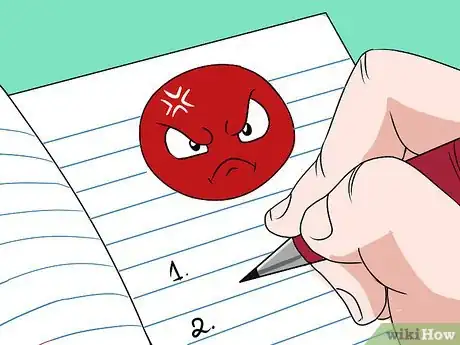
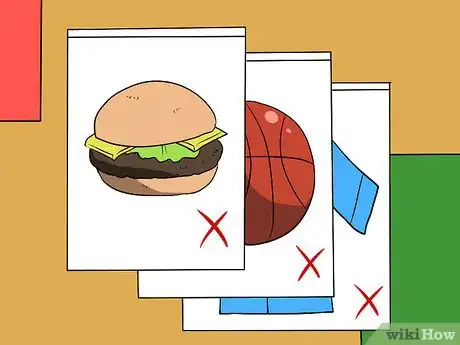
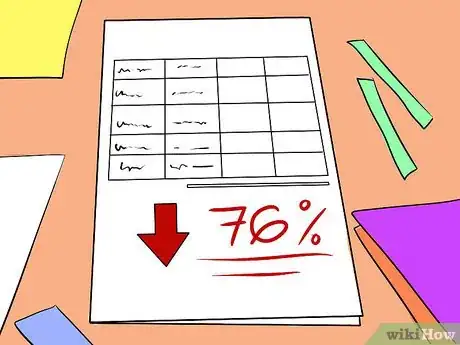

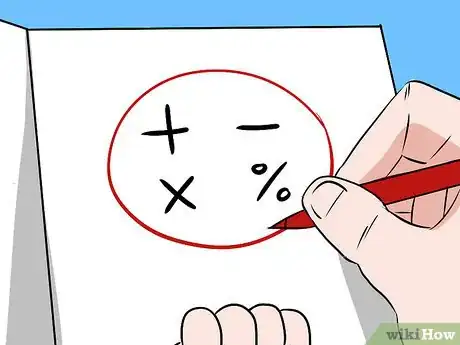
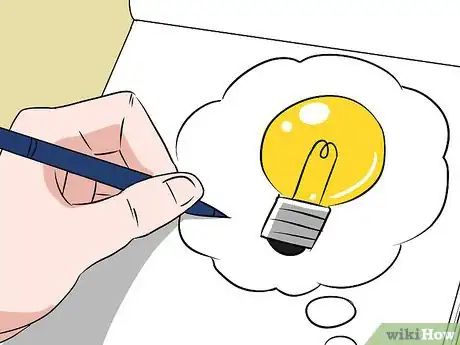
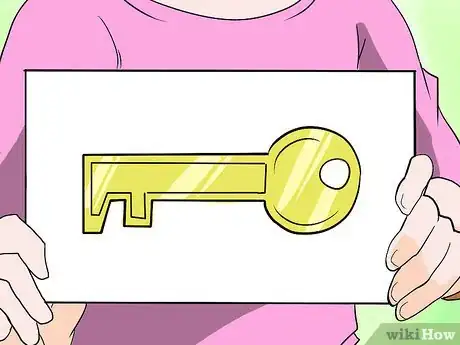
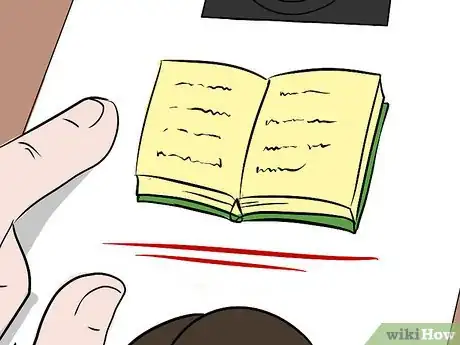
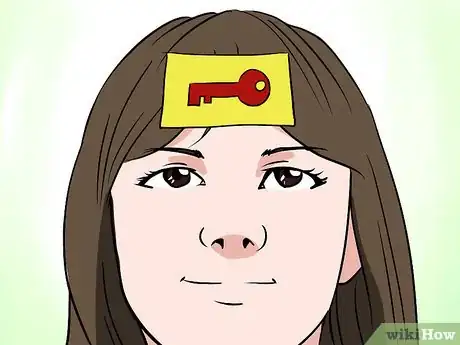


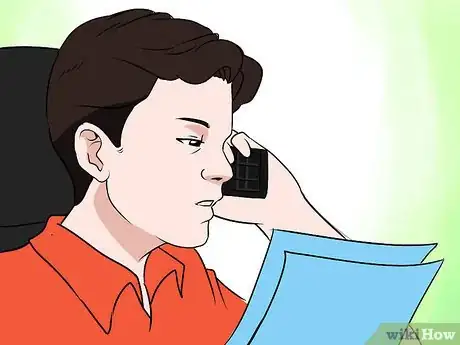

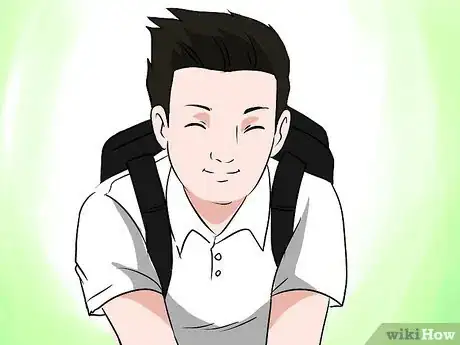


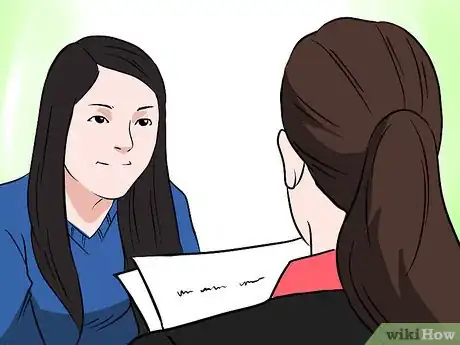


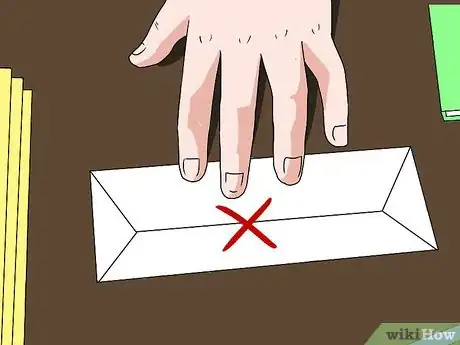
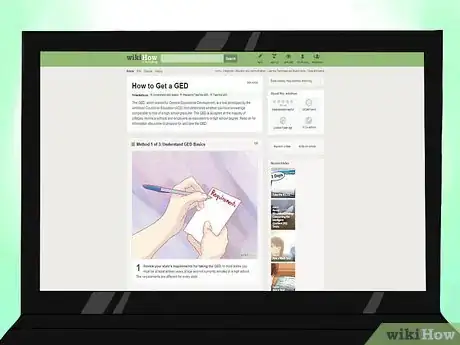
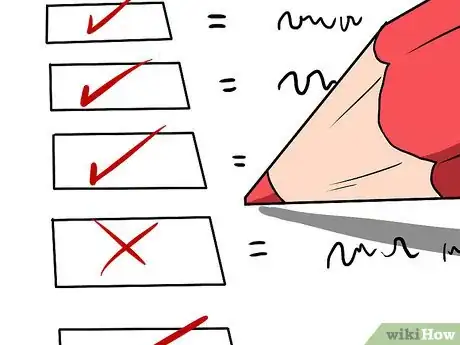







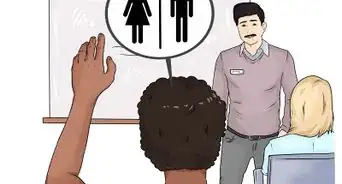

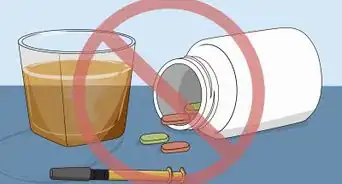
-Step-12.webp)

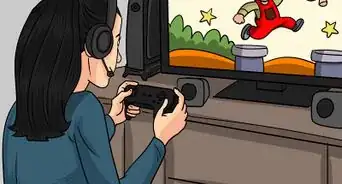
-Step-17.webp)












































